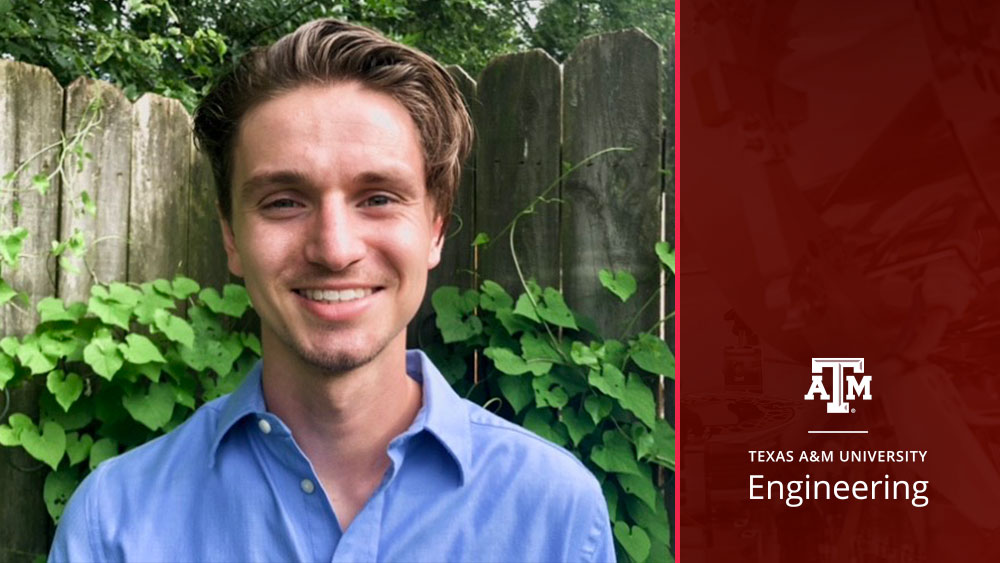
Trent White, a doctoral student in the Department of Aerospace Engineering at Texas A&M University, was awarded the Science, Mathematics and Research for Transformation (SMART) Scholarship.
The SMART Scholarship-for-Service Program is funded by the Department of Defense (DOD) and provides students full tuition to pursue degrees in science, technology, engineering and mathematics (STEM) fields. After graduation, SMART scholars apply their education and research experience as civilian employees with the DOD.
White has been recruited to join the U.S. Army Research Laboratory (ARL) – Weapons and Materials Research Directorate after graduation to work on developing algorithmic advances and computational tools for evaluating aeroelasticity problems.
Aeroelasticity is a branch of applied mechanics that studies the interaction between fluid and flexible solid structures. According to White, aeroelastic problems are notoriously difficult and expensive to evaluate when highly accurate solutions are desired, so such tools cannot practically be used during system design.
"The hope is that my research will lead to significant reductions in the cost and complexity associated with analyzing these problems, thereby enabling engineers to incorporate high-fidelity aeroelasticity into more system design frameworks," he said.
White already has experience with this research and working with the ARL. After receiving his bachelor's degree in aerospace engineering at Texas A&M, he participated in ARL's summer internship program, working with a team in the Vehicle Technology Directorate. Later, he was awarded a Journeyman Fellowship from the ARL, which funded the first two years of his doctoral program.
Since then, he's contributed to a Texas A&M collaboration with ARL to develop morphing drones using a novel fluid-structure interaction algorithm. This opportunity came from his involvement as a student research assistant in the Multifunctional Materials and Aerospace Structures Optimization (M2AESTRO) Lab.
“Trent is the perfect student to challenge with these difficult problems,” said his advisor, Dr. Darren Hartl, assistant professor in the Department of Aerospace Engineering and director of the M2AESTRO Lab. “He is curious and careful but optimistic and easy to work with. He is just the kind of high-performance scholar that deserves a fellowship like the SMART.”
White recently joined another collaborative project between Texas A&M, The Boeing Company and the Army to design and develop morphing rotorcraft technologies.
"The current motivation behind our research is to develop those aeroelastic analysis algorithms and computational tools so that we can use them to design morphing aerial vehicles," said White.